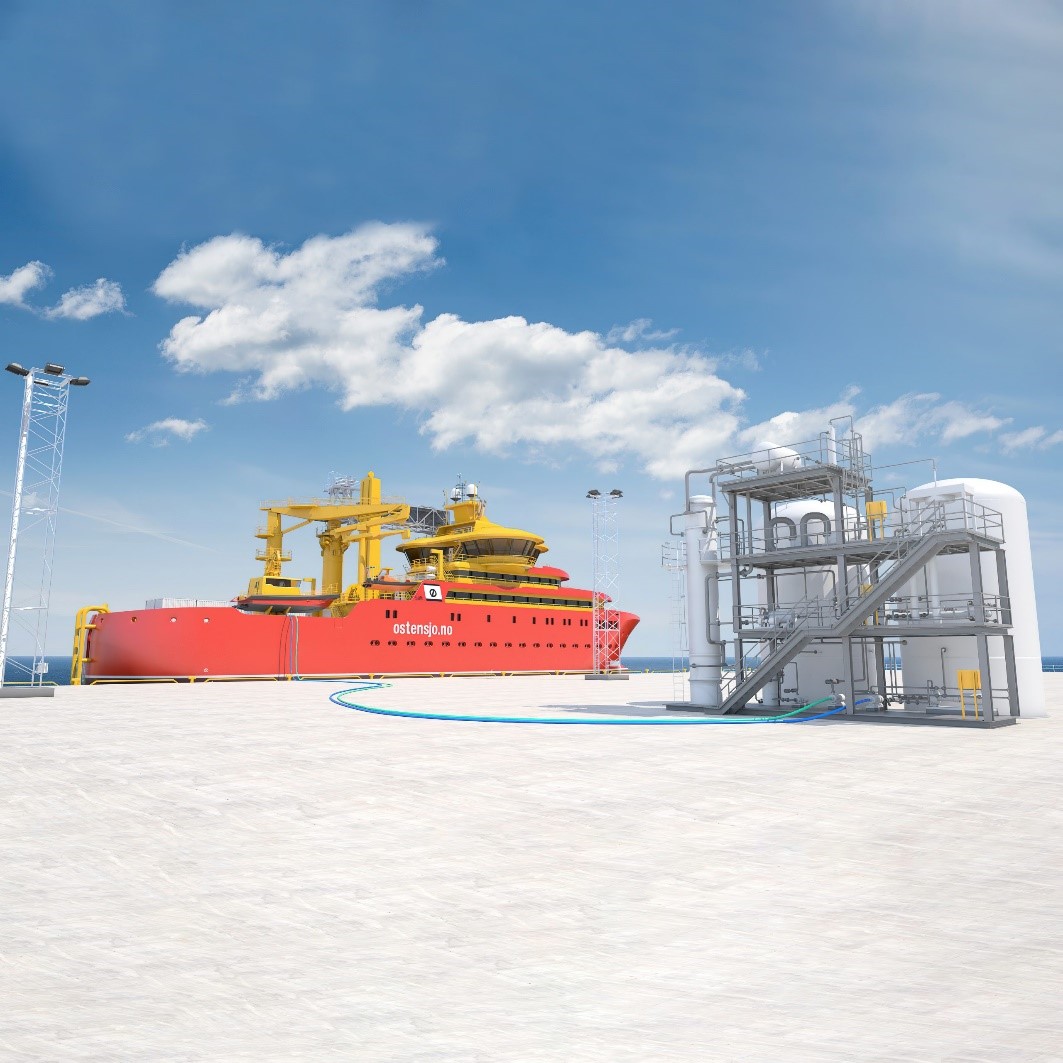Hydrogen release from LOHC for maritime transport
The storage of renewable energy in the form of hydrogen offers an effective solution for the decarbonisation of various sectors, including the maritime sector. However, as conventional methods of storing and transferring hydrogen, such as compression or liquefaction, require a high energy input and pose safety risks, the use of hydrogen as a fuel in shipping applications and other forms of transport has so far been limited.
A promising concept for the storage and transfer of hydrogen is the chemical bonding to liquid organic hydrogen carriers (LOHC). These carriers (e.g. benzyltoluene) can be hydrogenated and dehydrogenated reversibly, as well as safely stored and transported. Existing infrastructure from the transport and storage of fossil fuels can remain in operation.
The project “Ship-aH2oy” is part of the research and innovation programme Horizon Europe. Within this programme, the project is funded with up to 15 million EUR. The objective is to investigate innovative solutions for the decarbonisation of the maritime sector. The project consists of a consortium of 17 companies and institutes from 7 countries. The goal of the venture is to release hydrogen from LOHC on board a maintenance vessel for offshore wind farms and use it in combination with a Solid Oxide Fuel Cell (SOFC) for energy generation and propulsion. The system is expected to generate an electrical power output of 1 MW, with the exhaust heat from the SOFC being used for the endothermic LOHC dehydrogenation.
Since the dehydrogenation of LOHC has so far been carried out primarily in stationary plants on land, changed boundary conditions must be taken into account for the operation of the dehydrogenation unit on board a ship. For this reason, reaction engineering studies are being carried out at FAU to analyse the possible effects of influencing factors such as wave motion and vibrations on the performance and stability of the dehydrogenation unit. In addition, impurities within the released hydrogen will be qualified and quantified to ensure long-term stable operation of the SOFC. The collected data and FAU’s expertise in the field of LOHC dehydrogenation will support the project partners in the design of LOHC-based marine propulsion.

